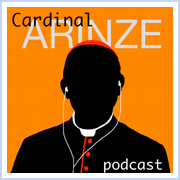From: Luke 9:1-6
The Mission of the Apostles[1] And He (Jesus) called the Twelve together and gave them power and authority over all demons and to cure diseases, [2] and He sent them out to preach the Kingdom of God and to heal. [3] And He said to them, "Take nothing for your journey, no staff, nor bag, nor bread, nor money; and do not have two tunics. [4] And whatever house you enter, stay there, and from there depart. [5] And wherever they do not receive you, when you leave that town shake off the dust from your feet as a testimony against them." [6] And they departed and went through the villages, preaching the Gospel and healing everywhere.
________________________
Commentary:1-4. This is the first mission the Apostles were sent on. Jesus wants them to gain experience which will stand to them in the mission they will have after He ascends into Heaven. He charges them to do what He Himself did--preach the Kingdom of God and heal the sick. This scene is commented on at greater length in notes on Matthew 10:7-8; 10:9-10; and Mark 6:8-9.
[Notes on Matthew 10:7-8 states:
7-8. Previously, the prophets, when speaking of the messianic times, had used imagery suited to the people's spiritual immaturity. Now, Jesus, in sending His Apostles to proclaim that the promised Kingdom of God is imminent, lays stress on its spiritual dimension. The power mentioned in verse 8 are the very sign of the Kingdom of God or the reign of the Messiah proclaimed by the prophets. At first (chapters 8 and 9) it is Jesus who exercises these messianic powers; now He gives them to His disciples as proof that His mission is divine (Isaiah 35:5-6; 40:9; 52:7; 61:1).]
[Notes on Matthew 10:9-10 states:
9-10. Jesus urges His disciples to set out on their mission without delay. They should not be worried about material or human equip- ment: God will make up any shortfall. This holy audacity in setting about God's work is to be found throughout the history of the Church: if Christians had bided their time, waiting until they had the necessary material resources, many, many souls would never have received the light of Christ. Once a Christian is clear in his mind about what God wants him to do, he should not stay at home checking to see if he has the wherewithal to do it. "In your apostolic undertakings you are right--it's your duty--to consider what means the world can offer you (2 + 2 = 4), but don't forget--ever! --that, fortunately, your calculations must include another term: God + 2 + 2..." ([St] J. Escriva, "The Way", 471).
However, that being said, we should not try to force God's hand, to have Him do something exceptional, when in fact we can meet needs by our own efforts and work. This means that Christians should gene- rously support those who, because they are totally dedicated to the spiritual welfare of their brethren, have no time left over to provide for themselves: in this connection see Jesus' promise in Matthew 10:40-42.]
[Notes on Mark 6:8-9 states:
8-9. Jesus requires them to be free of any form of attachment if they are to preach the Gospel. A disciple, who has the mission of bringing the Kingdom of God to souls through preaching, should not rely on human resources but on God's Providence. Whatever he does need in order to live with dignity as a herald of the Gospel, he must obtain from those who benefit from his preaching, for the laborer deserves his maintenance (cf. Matthew 10:10).
"The preacher should so trust in God that he is convinced that he will have everything he needs to support life, even if he cannot himself obtain it; for he should not neglect eternal things through worrying about temporal things" (St. Bede, "In Marci Evangelium Expositio, in loc."). "By these instructions the Lord did not mean that the evangelists should not seek to live in any other way than by depending on what was offered them by those to whom they preached the Gospel; otherwise this very Apostle [St. Paul] would have acted contrary to this precept when he earned his living by the labor of his own hands" (St. Augustine, "De Consensu Evangelistarum" , II, 30).]
___________________________
Source: "The Navarre Bible: Text and Commentaries". Biblical text taken from the Revised Standard Version and New Vulgate. Commentaries made by members of the Faculty of Theology of the University of Navarre, Spain. Published by Four Courts Press, Kill Lane, Blackrock, Co. Dublin, Ireland. Reprinted with permission from Four Courts Press and Scepter Publishers, the U.S. publisher.












